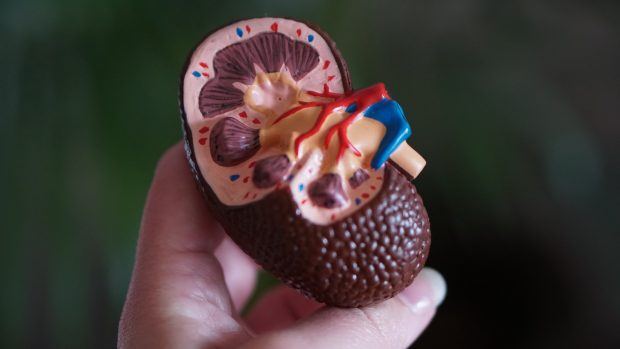If you haven’t ever paid much attention to the health of your kidneys, then today is the day to start! Our hard-working kidneys are as important as any other vital organ, and the consequences of not looking after them are severe. Several health conditions, including hypertension, also known as high blood pressure, diabetes, and obesity, all of which are prevalent all around the world, put the kidneys under serious strain. This can lead to chronic kidney disease (CKD), and ultimately, renal failure.
Your Kidneys Are Vital for Longevity
The kidneys are responsible for filtering our blood, eliminating toxins, and keeping the acid-base, water, and electrolyte balances in our bodies constant. They also play significant roles in hormone production and synthesizing vitamin D.
Even when they have taken some damage, our kidneys work so diligently that by the time we might feel the symptoms of CKD, they have already been significantly compromised. The upside is that we can make lifestyle and healthy eating choices now that can help to prevent this from happening.

Photo by Mikhail Nilov from Pexels
According to ADSA, (the Association for Dietetics in South Africa), people suffering from hypertension and diabetes, and those who are overweight or obese, must pay particular attention to the impact of these conditions on their kidneys. However, we can all make small lifestyle changes that will help protect their kidneys.
Eating For Kidney Health
Dr. Zarina Ebrahim, a Registered Dietitian, and Lecturer at Stellenbosch University highlights easy ways we can use nutrition to prevent CKD.
She says,
“Overall, it helps to ensure that you keep your weight in the normal range through healthy eating choices, portion limits, and regular physical activity, such as walking, swimming, cycling, running, or any other strength and aerobic exercises that you enjoy.
If you are diabetic, hypertensive, or have heart disease, it is of utmost importance to take your medications regularly and monitor your blood pressure, blood lipids, and blood glucose as the ideal control of these values are critical to kidney health.
However, even if you are not suffering from any of these health conditions, you can use nutrition to help maintain the health of your kidneys.”
1. Eat a variety of food
Keep your diet as natural as possible by limiting foods with additives such as processed and convenience foods, for example, pies, pastries, polonies, sausages like viennas, burgers, ready-packaged meals, takeaway foods, and packets of soups. Instead, focus on a wide variety of fresh vegetables and fruits, whole grains, small amounts of healthy fats, and lean protein.
2. Fiber is very important for kidney health
Fiber contributes to improving the gut microbiome profile. It increases the healthy gut bacteria and reduces unhealthy bacteria.
 Every day, aim for at least 2-3 fresh fruit servings (avoid fruit juices) and 2-3 vegetable servings. Increase your intake of legumes such as beans and lentils, as well as whole grains especially oats, wholegrain bread, and cereals.
Every day, aim for at least 2-3 fresh fruit servings (avoid fruit juices) and 2-3 vegetable servings. Increase your intake of legumes such as beans and lentils, as well as whole grains especially oats, wholegrain bread, and cereals.
3. Reduce salt intake
Limit the addition of salt at the table and to food while cooking. Also avoid salty foods such as chips, biltong, packets of soup, and other processed food products. Avoid using salty mixed spices such as BBQ and chicken spice.
Rather, use natural spices to add flavor to your food, such as cumin, coriander, pepper, turmeric, paprika, chili powder, fresh garlic, ginger, lemon juice, parsley, celery, and other herbs such as origanum, rosemary, thyme mint, and basil.
4. Protein is important but should be portion-controlled
If you want to prevent kidney disease, be careful not to regularly consume excessive amounts of protein. Choose low-fat protein options such as low-fat dairy, skinless chicken, fish, and lean meats.
Incorporate more plant-based proteins from beans, lentils, soya, nuts, peanut butter, and chickpeas into your family diet.
5. Focus on food preparation
Avoid takeaway meals and ready-made foods that are high in fat and salt. Instead select healthy cooking methods at home such as steaming, stir-frying, baking, and boiling, and don’t fry foods.
6. Reduce excessive sugar intake
Limit sugar and sugary foods in your diet, especially those coming from cold drinks, sweets, and chocolates. These contribute to unnecessary energy in the diet and may lead to the progression of CKD.
What should you do if you are suffering from CKD?
Registered Dietitian, Zama Khumalo, who is also a spokesperson for ADSA, points out that people in any stage of CKD need specialized nutritional support to help them optimally manage their condition.
She says, “It is recommended that people suffering from CKD pay attention to the protein, potassium, phosphate, and sodium content of the foods they eat. The aim is to support the kidneys by reducing toxins in the blood that can be caused by a high intake of these nutrients, in order to slow the progression of the disease.

Photo by Robina Weermeijer on Unsplash
However, it is important to note that patients across the stages of CKD need an individualized approach to their nutrition based on their health assessments, and there’s no one-size-fits-all solution.”
Eating with Chronic Kidney Disease
Generally, elements of the Mediterranean diet may be applied to people with CKD. The focus should be on reducing phosphate intake by avoiding processed foods that usually contain phosphate additives. Whole foods and fiber-rich foods should be increased, regardless of potassium content, unless the patient is hyperkalaemic, which means that you have higher than normal levels of potassium in your blood. In this instance, limit the intake of very high potassium foods. You can achieve naturally low sodium levels by becoming salt aware and eating less processed foods.
Aim to eat the right amount and the right types of protein. Too much protein may lead to further damage to kidney function, but not eating enough protein can cause muscle loss and malnutrition. Those receiving dialysis may need a higher protein intake. Better protein sources include beans, lentils, soya, eggs, chicken, lean meat, and dairy instead of highly processed meat products, but the appropriate portions will be guided by your dietitian.
Bottom line
Ultimately, people suffering from CKD should have a dietitian as part of their health team to help them optimally manage CKD and to prevent malnutrition, which is associated with progressive kidney disease.
Khumalo says, “In a nutshell, your dietitian works with you and your health team to improve quality of life, support your kidneys optimally and slow the progression of CKD.”





![women [longevity live]](https://longevitylive.com/wp-content/uploads/2020/01/photo-of-women-walking-down-the-street-1116984-100x100.jpg)









